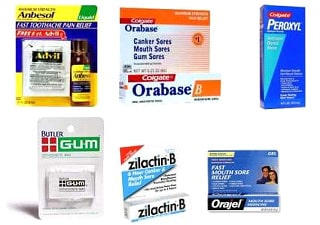Prompt Emergency Orthodontic Care
Orthodontic emergencies can happen, but knowing how to handle them can help you stay comfortable until you can visit our office. These emergencies typically fall into two categories: issues related to orthodontic appliances and direct injuries to the mouth or teeth.
Orthodontic Appliance Emergencies
Braces and other orthodontic appliances may occasionally become loose or damaged. If you experience any of the following issues, please call our office during patient hours to schedule an appointment. To ensure the best care for all our patients, we are unable to accommodate walk-in emergency visits. In the meantime, here are some quick fixes to manage discomfort until your visit:
- Irritating or poking wires – Cover the wire with orthodontic wax or carefully tuck it under the archwire using a blunt object like a pencil eraser or Q-tip.
- Loose bands or brackets – If the band or bracket is still attached to the wire, leave it in place and avoid touching it. Contact our office as soon as you notice the issue so we can schedule a repair.
- Broken or sharp archwires – Try bending the wire back with a pencil eraser or, if necessary, use clean nail clippers or cuticle cutters to trim the excess. If discomfort continues, contact our office for further assistance.
Direct Injuries to the Mouth and Teeth
If you suffer an injury to your mouth or teeth—whether or not you are wearing braces—take the following steps:
- Apply ice to the affected area immediately to reduce swelling.
- Contact your general dentist as soon as possible. X-rays may be needed to assess the extent of the injury.
- If a tooth is knocked out, fractured, or displaced, your family dentist should be your first point of contact, as they have the necessary tools and anesthesia to manage these injuries.
- If your orthodontic appliances are damaged due to the injury, schedule an appointment with us after consulting with your dentist.
Managing Discomfort from Orthodontic Treatment
It’s normal to experience some discomfort as your mouth adjusts to orthodontic treatment. Fortunately, any soreness or irritation is temporary and can be managed at home.
Sore Teeth
Once your teeth start moving, they will be sore for 3-5 days. The soreness may return in 10-15 days for another few days and then subside.
We suggest taking an over-the-counter pain medication to manage discomfort:
- Take a medication such as Tylenol®, Motrin®, or Advil® (please read labels carefully before taking any medications).
- Be sure to take the medication around the clock as prescribed on the bottle for effective pain control.
Sore Tissues
Your cheeks, tongue, and lips may feel sore and raw from the new hardware. It is quite normal to get “white sores” from this irritation.
The good news? Within two to three weeks, the soft tissues will toughen up, and the irritation will go away.
You may use the orthodontic wax (given to you in your hygiene package) on the parts that feel irritating. You may also use numbing agents, such as Orajel, Anbesol and Zilactin B, to numb the tissues while healing and callusing. Any over-the-counter peroxide mouth rinse (such as Peroxyl) or a mild saltwater rinse (one teaspoon of salt in 8 ounces of warm water, 3-4 times a day) will also help the healing.
It takes 1-2 weeks before your lips, cheeks and tongue form calluses and become desensitized to the new hardware in your mouth. Please be patient; we promise that it does get easier as we go along!

After-Hours Orthodontic Emergencies
If you experience significant pain outside of our regular office hours, please call our office for instructions on who to contact for further assistance. We are here to ensure your comfort and care throughout your orthodontic journey.